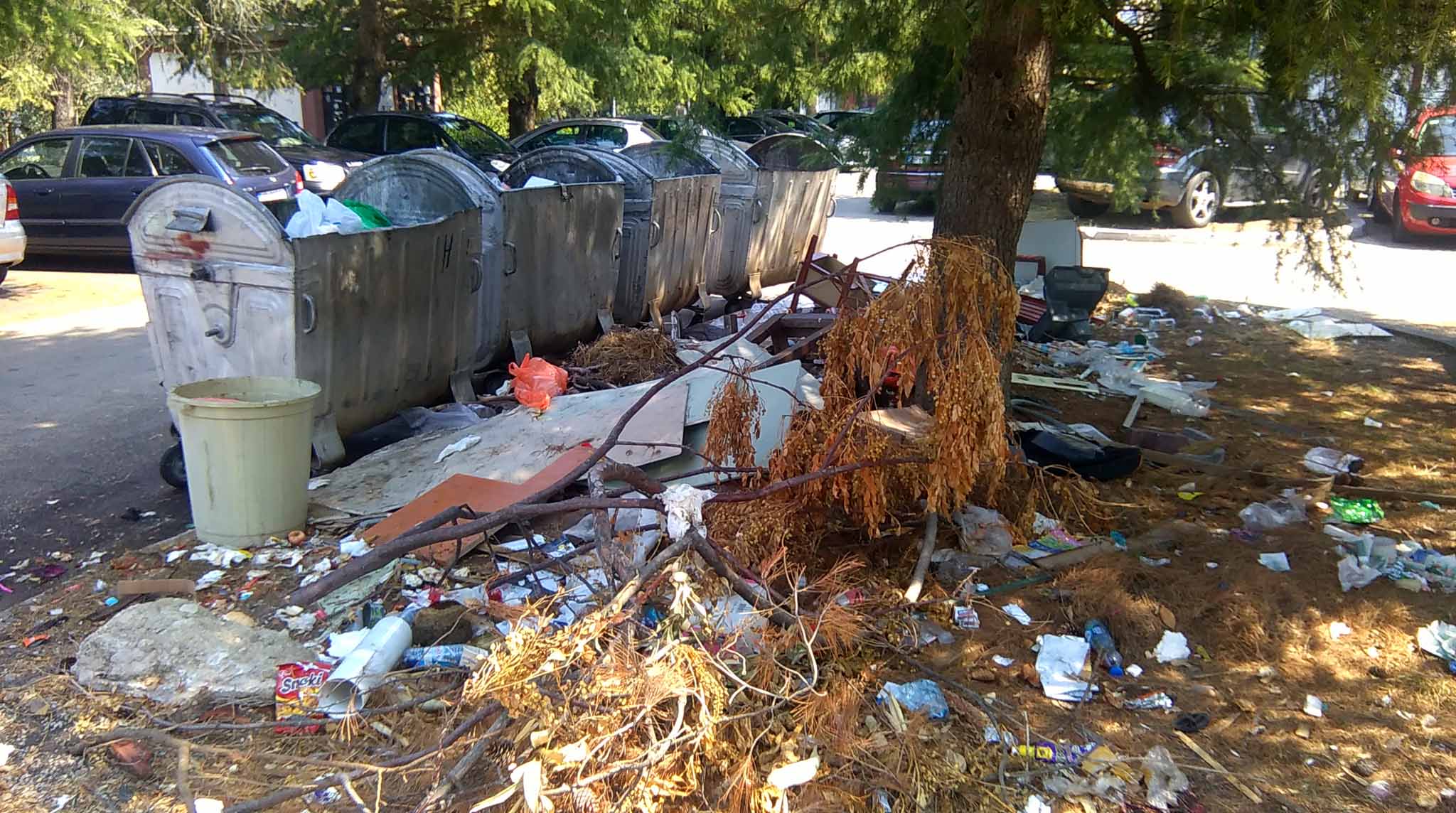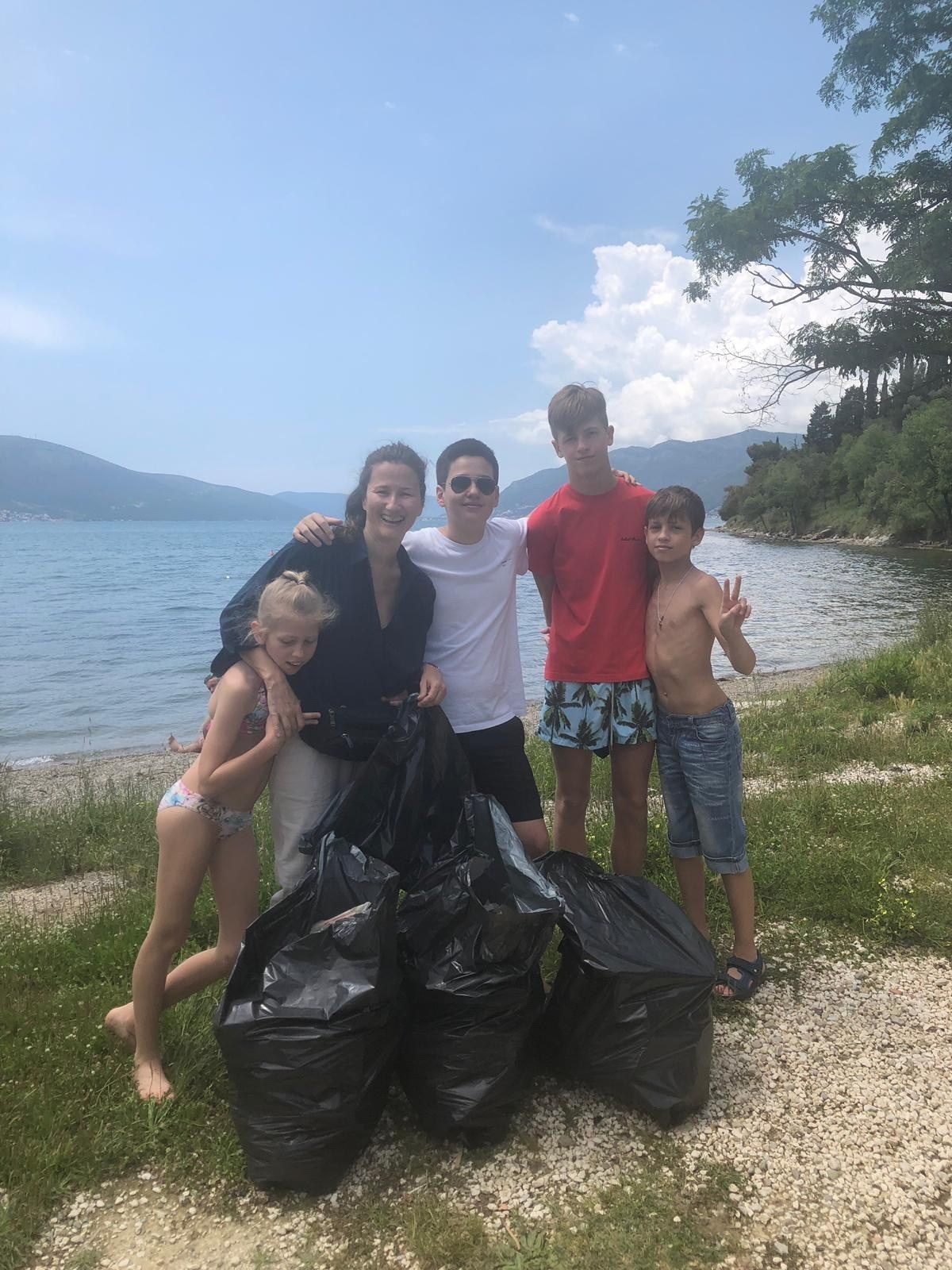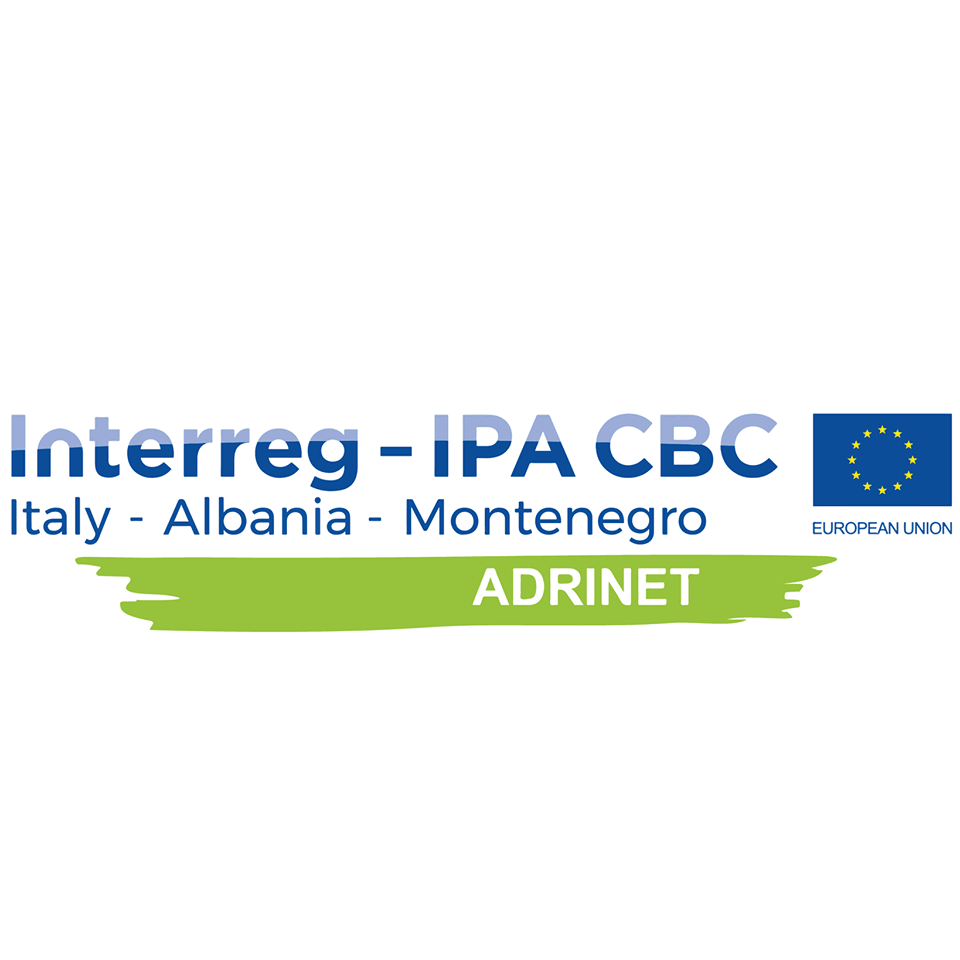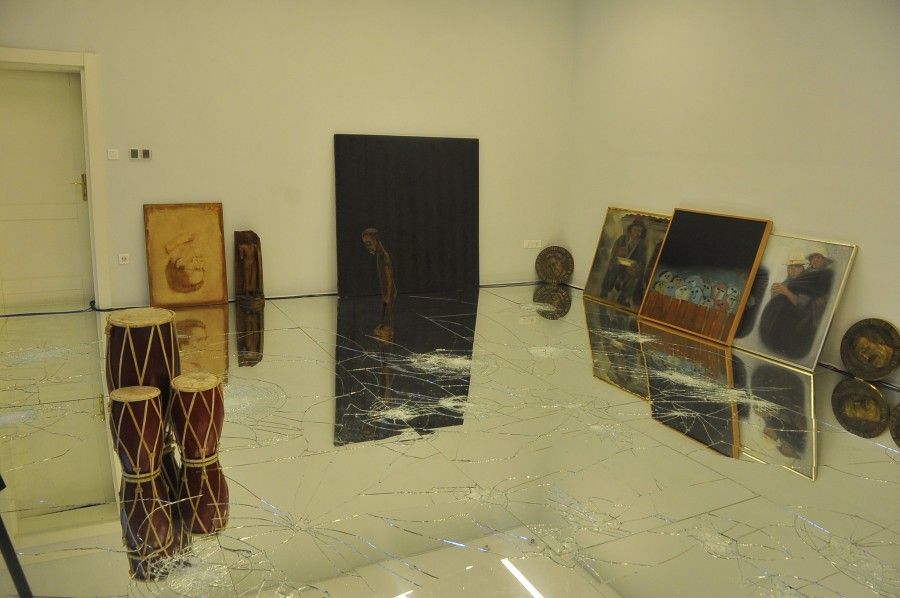Lifestyle
The first donkey museum in the region will soon be opened at the Donkey farm in Martinici, and the founder of the farm, the ornithologist Darko Saveljic, has also announced the opening of the visitors' center. "It will be the first farm in the country to have a visitor center and the first donkey museum in the region," he told Newspapers. Saveljic founded the farm in 2015 to protect an animal that is part of Montenegrin natural and cultural heritage. So, it became a refuge for a few donkeys bought by the founders to save them from torture, hunger, and hard work. He said that about thirty years ago, the donkey was the best ally of rural households in the karst part of the country. Today, it has lost the battle with machines and has become one of the most endangered animal species in Montenegro, even threatened by the pelican. Visitors to the future museum will be able to see saddles, wooden buckets (burilo), Polaroid photographs with donkeys on beaches, photographs from the lives of donkeys in Montenegro, and stories from the life of the first donkey farm in Montenegro over 108 square meters.
The Visitor Center will be located within the museum. Saveljic said that the idea is that this space will be free of charge for seminars and workshops on nature protection and agriculture. Two suits within the farm will soon be completed to accommodate volunteers working there.
"The farm is very popular abroad and we have a large number of announcements, especially German tourists, who want to stay at the farm, where they will work and pay for it. It sounds strange, but the foreigners will stay on the farm, work and pay," says Saveljic.
One hundred fifty donkeys live in Montenegro and that is the total number of these animals, counting those on the farm in Martinici.
He explains that it is a form of tourism that is more popular with those who want an active vacation.
"These are mostly families with children. There will also be organic gardens, so we can start the program “Pick, prepare and eat” to complete the offer. Soon the valley of Zete River will be a protected area, so staying in the beautiful and protected nature is a luxurious experience," said the founder.
Apart from being a shelter for donkeys, the farm has the role of sensitizing people to the problems of animal abuse and offers free assistance to families who have problems with autistic children. Donkey’s milk production is also carried out on the farm, and almost half of the product obtained is donated to the most serious diseases and children suffering from diabetes.
More than 57,000 visitors have visited the farm in Martinici so far, and it is recommended by the famous tourist guides Trip Advisor and Lonely Planet.
"Only in December last year, at the fourth New Year’s ball for children and adults, we had more than three thousand visitors in one day," Saveljic recalls. The donkey farm is open for visits on Sundays from 10 am to 1 pm. The entrance ticket is a kilogram of fruit per person.
The construction of the Visitor Center was supported by the Rockefeller Foundation, through the Active Citizenship Fund in Montenegro.
Text by Damira Kalac, on June 5th, 2019, read more at Vijesti
Sergey Gron's Ecological Actions
 Ecological State of Montenegro, Bar, Copyright: Vijesti
Ecological State of Montenegro, Bar, Copyright: Vijesti Ecological action by Dubravka Jovanovic and Her Young Team
 Dubravka and her team in the ecological action at Župa, Tivat, Copyright: Dubravka Jovanovic
Dubravka and her team in the ecological action at Župa, Tivat, Copyright: Dubravka Jovanovic04 June 2019 - Prime Minister Duško Marković told citizens that the past two years of Montenegro's membership in NATO confirm that by joining the North Atlantic Alliance, Montenegro has strengthened the security and safety of the country, contributed to the stability of our region and created the preconditions for the development and better life of citizens, and that we can be proud of the fact that Montenegro is in the company of the most powerful democracies of the world.
"For the first time, we have the opportunity to preserve the values that we naturally belong to and promote them together within the 28-country Alliance. We have strengthened the security and safety of the country, contributed to the stability of our region and created the preconditions for the development and better life of our citizens. Without stability, there is no progress - and every citizen of the Balkans knows it best. Citizens of Montenegro can be proud of the fact that our State equally stands shoulder to shoulder with the most powerful democracies of the world, through the role of an ally in the global challenges facing every corner of the planet. It is in Montenegro's best traditions to be there for our partners. But today, unlike many other periods of our history, we have allies behind us ready to help us tackle every challenge, at any time," said Prime Minister Duško Marković in his address to the citizens on the occasion of the second anniversary of Montenegro's membership in NATO.
He also noted that NATO membership is much more than a military alliance because it contributes to the growth of foreign investments and tourists visits.
"What you can see in the past two years is the growth of foreign direct investment not only from the Alliance member states. NATO membership can be reasonably correlated with investment indicators and tourism records. I also believe that those who did not support the path of Montenegro to NATO today see that it is inseparable from our future membership in the European Union, to which Montenegro is getting closer and closer every day by making notable social progress," Prime Minister Duško Marković concluded.
 2nd International Carnival in Tivat, Press Conference, Photo by Zeljko Komnenović, Radio Tivat
2nd International Carnival in Tivat, Press Conference, Photo by Zeljko Komnenović, Radio Tivat 03 June 2019 - "The countries of our region, today, must not miss the chance to be part of modern trends in the field of energy and social development," Minister of Economy Dragica Sekulić said at the Summit on Energy Security in the Region.
She participated at the Summit on Energy Security in the Region, which was held in Belgrade, and said that she was honored to have the opportunity to talk with her counterparts from the region on such an important topic.
"It is known that providing sufficient amounts of energy is one of the key conditions for the sustainability of modern society, as well as the basic precondition for sustainable development that we all strive for. However, it seems to me that the question is - how do we provide sufficient amounts of energy - something that represents the most demanding task of this generation of decision makers," Sekulić said.
She recalled that this very complex job is somewhat easier. Namely, with our strategic goal (EU membership), we have created an opportunity to follow the example of those who actually set standards in terms of sustainable development and clean, climate-neutral energy.
In accordance with its energy priorities, Montenegro will continue to pursue activities to ensure secure energy supply, the development of a competitive energy market and sustainable energy development, with active cooperation with all those who have the same objectives.
"I think that we only develop energy in such a way that is economically viable, energy-efficient and environmentally friendly," the Minister concluded.
This regional summit is organised under the auspices of the Ministry of Mining and Energy of Serbia and is of great importance for the entire region, bearing in mind that it has gathered the ministers from Southeast Europe for the first time.
An open discussion in the three panels presented an international energy stability plan for the region and considered all aspects of the implementation strategies for the energy transition.
04 June 2019 - Podgorica will soon receive its first public electric vehicle charging stations. The EV charging stations will be installed in two locations in the city: at the crossroad of Njegoševa Street and Vučedolska Street in the city centre, and in the garage of the "Parking service" in Milan Popović Street (behind the Restaurant "Maša"), said the report by the local government representatives.
The installation of the first public electric vehicle charging stations is part of the project entitled Development of Low-Carbon Tourism in Montenegro", which is being implemented by UNDP in cooperation with the Ministry of Sustainable Development and Tourism of Montenegro, and with the financial support of the Global Environment Fund (GEF).
Aside from the station in the Capital City, this project will include the installation of electric vehicle charging stations in Budva, Bijelo Polje, Kolašin, Cetinje and Žabljak, as well as in the National Park Skadar Lake (Vranjina).
The use of public EV charging stations will be free of charge during the first year, after which the service providers will individually decide on further conditions for charging electric cars.
Chargers will be stationary, with two types of chargers (sockets) of type 2: one with minimum power of 22 kW and the other with minimum power of 11.01 kW, in accordance with international standards IEC 62196, IEC 61851 and EN 62196-2.
Procuring the charging devices is funded by UNDP, while the preparation of locations, maintenance of the charging stations and provision of services for filling are included in the local government obligations.
At a UNDP meeting held on June 3, 2019, grant beneficiaries agreed on modalities of exchange of experience and best practice examples in the realization of this project, which aims to support the development of e-mobility in Montenegro.
Learn more about Lifestyle in Montenegro at TMN's dedicated page.
 ADRINET is implemented within IPA Cross Border Cooperation Italy- Albaia- Montenegro
ADRINET is implemented within IPA Cross Border Cooperation Italy- Albaia- Montenegro Djordje Peric, a student of the elementary music school "Kornelije Stankovic" from Bijeljina, won in the pre-category at the 9th International Festival “Harmonika Fest”, which was held in Tivat from 29th to 31st May. In the II category, Vladimir Stojanović from the music school I and II degree from Mostar was awarded, and in the III category Pavle Djuric, a pupil of the school "Vasa Pavic" from Podgorica, was awarded. Petar Balaban, a pupil of the school "Savo Popovic" from Cetinje, triumphed in the IV category, in the V was Lazar Janjusević from "Vasa Pavić", Podgorica, and in VII Ante Selak from Makarska.
The first place in the VIII category was won by Stefan Dimitrijevic, a student of the music school "Dr. Miloje Milojevic" from Kragujevac, and in IX Bozidar Rajic (Faculty of Arts Nis).
When it comes to chamber music, the best works were presented by Valentina Celebic (violin) and Vujic Petar (piano), pupils of the school "Savo Popovic" from Cetinje. In the second category, the best were Emina Visnjic (violin), Milica Djurović (violin) and Milica Rabrenovic (piano) from the music school in Bijelo Polje, and in the third the accordion trio - Hristina Merdovic, Relja Cetkovic and Nemanja Boljevic from "Vasa Pavić" Podgorica.
“Inat trio”, consisting of by Azmir Halilovic, Danijel Lovric and Asmir Hamzic (Academy of Music Sarajevo), won the first place in the fourth category.
In the orchestra competition, the first category was won by the orchestra of accordions from the music school "Kosta Manojlovic" from Smederevo, in second was the orchestra of the accordions "Dara Cokorilo" from Niksic, and in the third Kragujevac Academy Accordion Orchestra.
The festival gathered around 250 accordionists from 12 European countries.
Director and founder of the Festival, Predrag Jankovic, said that “Harmonika fest” has been progressing and developing year by year and is positioned well on the map of the well-known European accordion festivals.
"This year, we had a record number of participants in the competition segment. This is an indication that the Festival is going upward," he says.
The contestants were presented in 17 categories.
The participants were evaluated by a renowned jury, including the French Frederic Deshamps, President of the World Conference on Accordionists, Radomir Tomic and Miljan Bjeletic from Serbia, Dalibor Boljun from Croatia, Damir Sultanov from Kazakhstan, Miroslav Ilic and Aleksandar Basarab from Montenegro.
The festival was supported by the Ministry of Culture of Montenegro, Tivat Culture Center, Tivat Municipality, and the General Sponsor is the Montenegrin Commercial Bank (CKB).
Text by CdM, on June 2nd, 2019, read more at CdM
The two-decades-old idea about constructing a cable car that would connect Becici and Kosmac fortress could soon be realized. Namely, Budva's new city administration does not give up on being a partner with the private company "Cable Car Montenegro" in the construction of a cableway from Becici Cucuci, not far from Hotel "Falkensteiner", to the Austro-Hungarian fortress Kosmac on Brajici.
At yesterday's meeting, the councilors had to come up with a proposal to establish a public interest that would envisage the expropriation of nearly 35,000 square meters of land on a 2.1-kilometer-long road, where this tourist attraction should pass. This is the seventh decision in the last decade since the idea of the cable car was promised, but only now, after resolving the misunderstandings about the property and legal relations with the owners of the parcels on the track of the future lifts, the decision has been made. However, due to the turmoil within the ruling coalition, a session of the local parliament that needed the green light for this project was postponed until further notice.
The purpose of expropriation was the construction of a cable car on the route Becici - Brajici. The municipality will completely expropriate 16,780 square meters to erect pillars on the site, while 27,393 square meters will be completely expropriated for the official passage and use.
The municipality will be the expropriation user, but all costs will be offset by the company "Cable Car Montenegro", which had deposited money four years ago.
The story of the ski lifts started in 2008 when the company “Cable Car Montenegro” was founded. Investors then proposed that the municipality enter the project.
In the Central Register of Business Entities, 56 percent of the founding capital is owned by a tourist worker Branko Diki Kažanegra, 27 percent by Nikola Koprivica, and Ivan Tomic 17 percent. On March 16th, 2008, the Municipal Assembly adopted a decision on the role of the Municipality in establishing a company “Cable Car”. In December of that same year, the local parliament adopted amendments to that decision, which approved the entrance of the Municipality as the founder of “Cable Car Montenegro”. As a founding stake, the Municipality entered its immovable property. "Cable Car Montenegro" paid a deposit of 483,680 euros to the special account of the Ministry of Finance in the middle of November 2015 for expropriation purposes for the construction of the cable car.
Then the entire project was promoted, but due to unresolved property issues, there was no construction. It has been stated on several occasions that the project is worth EUR 12 million and that the investor or the company will provide the money for construction and expropriation. The runway of the future lifts would be 2.1 km long, the starting station in Becici, not far from the hotel complex "Falkensteiner", where it is planned to build a large parking lot and a couple of smaller facilities such as a ticket office and a big public toilette.
From here, the ski lift will climb up some 840 meters above sea level, not far from the Austro-Hungarian fortress Kosmac, where it is foreseen to build a complex that would include small ground buildings made of autochthonous materials, mostly stone. The complex would consist of a large restaurant, a couple of souvenir shops, as well as a large amphitheater in the open air, and large green areas for the visitors to have a rest.
In a car with a maximum of eight people, tourists would travel from Becici to Brajici in only six to seven minutes. This could take up to 1,350 to 1,540 passengers for about an hour.
President of the local parliament and Democratic leader Krsto Radovic submitted an amendment to the decision on determining the public interest by which they sought to enforce the expropriation and the protective band along the route.
It is required that the Investment Secretariat will order the execution of an Elaborate to determine the protective band that will also be subject to expropriation.
"After consulting with the citizens and looking at the situation on the field, it has been established that the land through which the pipelines, necessary for the operation of the lifts and the land nearby, cannot serve their purpose, and that it also remains in the property of the current owner of property rights which are obliged to pay the fee for the same," says the explanatory statement of the amendment.
Text by Vuk Lajovic, on June 4th, 2019, read more at Vijesti
June 4, 2019 - An exhibition titled 'Word Blind' by Dutch painter Matthijs Scholten will be officially opened on Thursday, June 6, at the Naval Heritage Collection at 8 pm.
03 June 2019 - An exhibition entitled “ Steps “ (Italian: Passi) - installation by Italian artist Alfredo Pirri was opened at the Centre for Contemporary Art of Montenegro on June 03. The evening event, organized on the occasion of the Statehood Day of the Republic of Italy and 140 years of diplomatic relations between Montenegro and Italy, was opened by the Minister of Culture Aleksandar Bogdanović.
As reported by the Ministry of Culture of Montenegro, on this occasion Bogdanović said that this installation by Pirri is a contemporary artwork, “which without a doubt reflects a certain boldness that was left to us as a model by the artistic seekers and demolitionists of the conventions of the European south”.
“The primary task of the art by Pirri is the determination of the relationships between space and activity, which builds a relationship rich in meaning and emotional energy. All this makes the work of Alfredo Pirri very appropriate in the days when we celebrate the jubilee of the cooperation of our two peoples, because it puts emphasis on those connections that are not visible in the area of practical and political relations, but are hidden in deep layers of the spirit of space and historical experience,” Bogdanović explained.

The Ambassador of the Republic of Italy to Montenegro H.E. Luca Zelioli said that Alfredo Pirri is a versatile artist with international renown. “In my opinion, tonight we are taking part in a "cultural event”, not just viewing an exhibition. This event is conceived as a preparation for the celebration of the Statehood Day of the Republic of Italy, which will be held tomorrow in Cetinje. All this is part of a number of events organized by our Embassy on the occasion of the celebration of the 140th anniversary of the establishment of diplomatic relations between Italy and Montenegro. These relations were established at a time when both countries were kingdoms,” Zelioli stressed.
The installation “ Steps ” represents a very successful concept that was realized in places of exceptional symbolic significance such as the Carthusian Monastery of Saint Lorenzo in Padua (2003), the Caesar Forum in Rome (2007), the National Gallery of Modern Art (2011) and Academy Gallery in Florence (2012) and Altemps Palace in Rome (2018).
Speaking about his installation “Steps“, Pirri stated: “With this work I should like to give the spectator the impression that while moving in space he can modify his vision of it, carrying out a twofold simultaneous action of demolition and reconstruction of the image. His sensations will lead him to think that he himself is the subject of the work, and in experiencing the action of looking at himself upside down, and feeling that infinitesimal space like a skin that binds him to and separates him from his own image, he will come to be part of it in a “natural” manner, in the same way that he is part of the world”.






